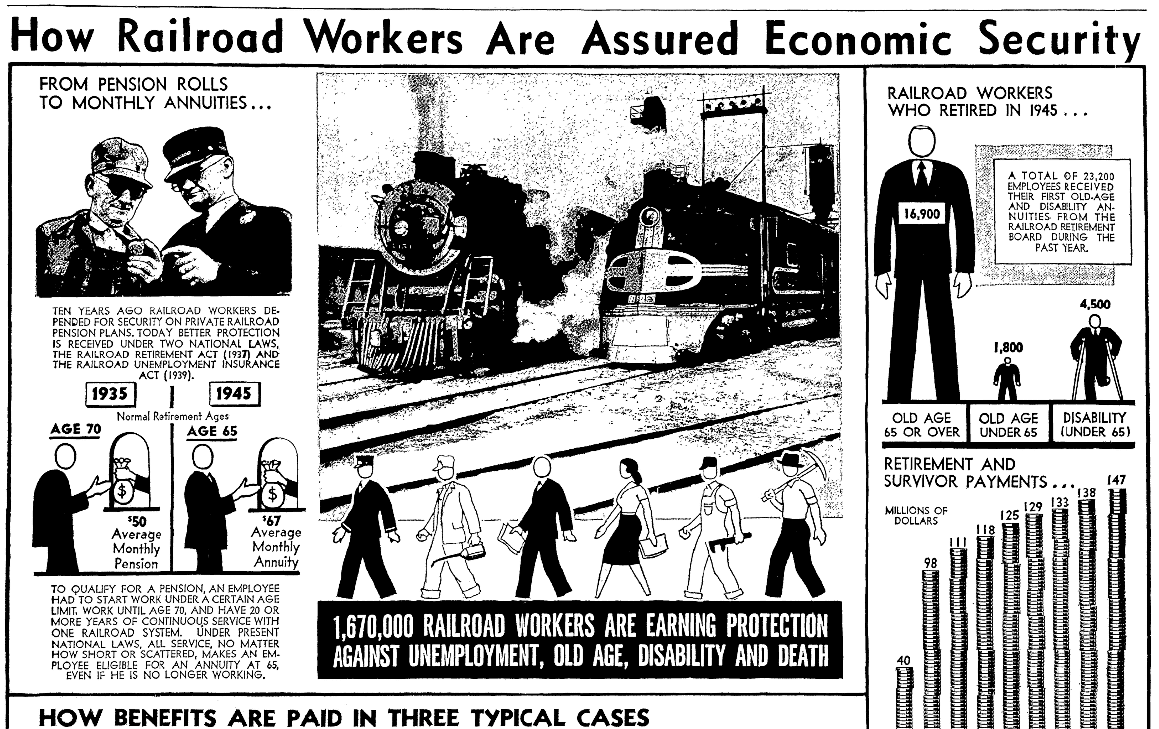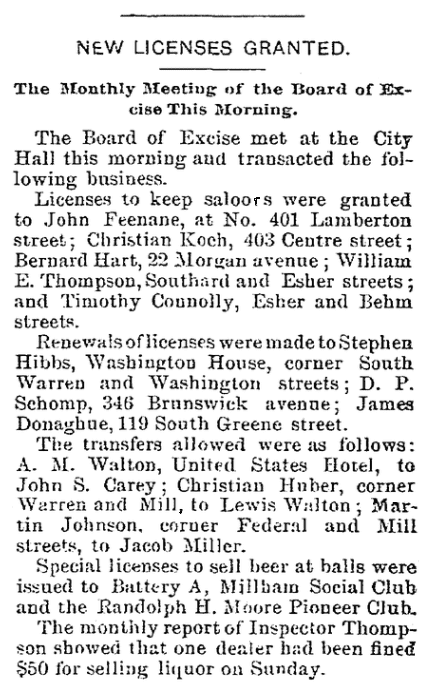Introduction: In this article – part of an ongoing “Introduction to Genealogy” series – Gena Philibert-Ortega describes some of the occupational records she uses with her own family history research. Gena is a genealogist and author of the book “From the Family Kitchen.”
We have explored how to uncover ancestral occupations previously in the Genealogy 101 series (see The Occupations in Your Family Tree) – but once you know what your ancestor did for a living, what types of occupational records should you search for? Like other genealogical record sets, “occupational records” is a broad term that could account for any number of record types depending on the occupation and the time period. What kinds of records fit in the category of occupational records? The following are just a few examples to look for.
Pensions
Did your ancestor work in an occupation where they could have received some sort of pension or retirement benefit? In my family, that describes my paternal line, who worked for various railroads starting in the early 1900s. Those who worked for the railroad after 1936 may have received a railroad pension. Railroad pension records include birth and death dates as well as other information about the pensioner. Records that are considered inactive can be ordered from the National Archives. For more information, see their web page on Railroad Retirement Board Records.

Business Licenses
If your ancestor owned a business, they may have had to obtain a business license to operate it. These records may be found in a city, county, or state archive where your ancestor conducted their business. In this 1885 newspaper article example from Trenton, New Jersey, business licenses were being granted and renewed for saloons and those selling beer at a hall, as well as the transfer of ownership of a hotel.

You can find business license records in archives and listed in the FamilySearch Catalog. Don’t forget to look for evidence of a business license in historical newspapers for your ancestor’s city.
Bankruptcy Records
Did your ancestor own a business that eventually filed for bankruptcy? Maybe they worked for a bankrupt business owner. Bankruptcy records might be useful in your research. Searching historical newspapers for the business name or the owner’s name is one way to find information, whether in an article or a bankruptcy notice.
National Archives Records Groups 21 and 578 contain Records of the U.S. District Court and Records of the U.S. Bankruptcy Court, respectively. According to its website:
“The content varies depending on the type of bankruptcy and the time period in which the case was filed. There have been five major Bankruptcy Acts by the Federal government: 1800, 1841, 1867, 1898, and 1978.”*
You can learn more about ordering bankruptcy records from the National Archives website. You can also find some bankruptcies in the FamilySearch Catalog by searching on the keyword “bankruptcy.”
Personnel Records
While you may be less likely to find an ancestor’s personnel record, it is a possibility when searching in archival collections and genealogy websites. For example, FamilySearch has the collection of Employee Record Cards, 1900-1930 (Southern Pacific Railroad). These cards include name, dates of hiring and termination, job assignment and former employer.
If I continue my search for railroad personnel records beyond familiar genealogy websites, I can find additional record sets held in places like the California State Railroad Museum as described on the archival catalog Online Archive of California and worldwide archival catalog ArchiveGrid.
Directories
You may find an ancestor in an occupation-related directory – either for an occupation, specific business, or professional organization. Even a directory like “Who’s Who” or a society register can be valuable for learning more about a person’s work life.
One example of an occupational directory that’s really a locality directory is a farm directory. Farm directories are similar to city directories, but they list farmers and their families. These directories could be used with the U.S. Agricultural Census schedule (when available), and a plat map to tell the story of your ancestor’s farming life.
Workplaces also publish directories. For example, a collection of Allen County School directories can be found on the Allen County Public Library page on Internet Archive. These directories include the names of teachers, the subject they taught, and the name of their school.
Because various directories might be beneficial to your research, it is important to search digitized book websites or the FamilySearch Digital Library for the location or the name of the place your ancestor worked.
Histories
I realize that a history isn’t a record, but I think it’s important to consider histories of businesses or even local histories when we research our ancestor’s occupation. Whether it’s a history written by the business, or mentions of the business in a local history, such information can help you better understand your ancestor’s occupation – and, in the case of a personal mention, what they personally did.
Histories can be found by searching WorldCat using either the name of the business or the place the business was located. Also search digitized book websites including Google Books, Internet Archive, and Hathi Trust.
I also highly recommend searching online auction websites for histories related to the place your ancestor worked. One of my online finds was this history of the Chatham Manufacturing Company, makers of the famous Chatham Blanket. The company was founded by the brother of one of my ancestors.
The marketing booklet/history includes photos of employees, including this one of “Aunt Mandy” Burcham that not only lists what she did at Chatham Manufacturing but includes the names of her son and granddaughter who also worked at the company.
Occupational Records
A whole book could be written about occupational records left behind by our ancestors. To start documenting your ancestor’s work life, consult histories, newspapers, and search FamilySearch as well as archival catalogs for possible records that exist. Don’t forget to also consider possible home sources in the possession of family members, including everything from name badges and photos to training manuals and termination papers.
* “Bankruptcy Case Files at the National Archives at Kansas City,” National Archives (https://www.archives.gov/kansas-city/bankruptcy-case-files: accessed 28 August 2019).
